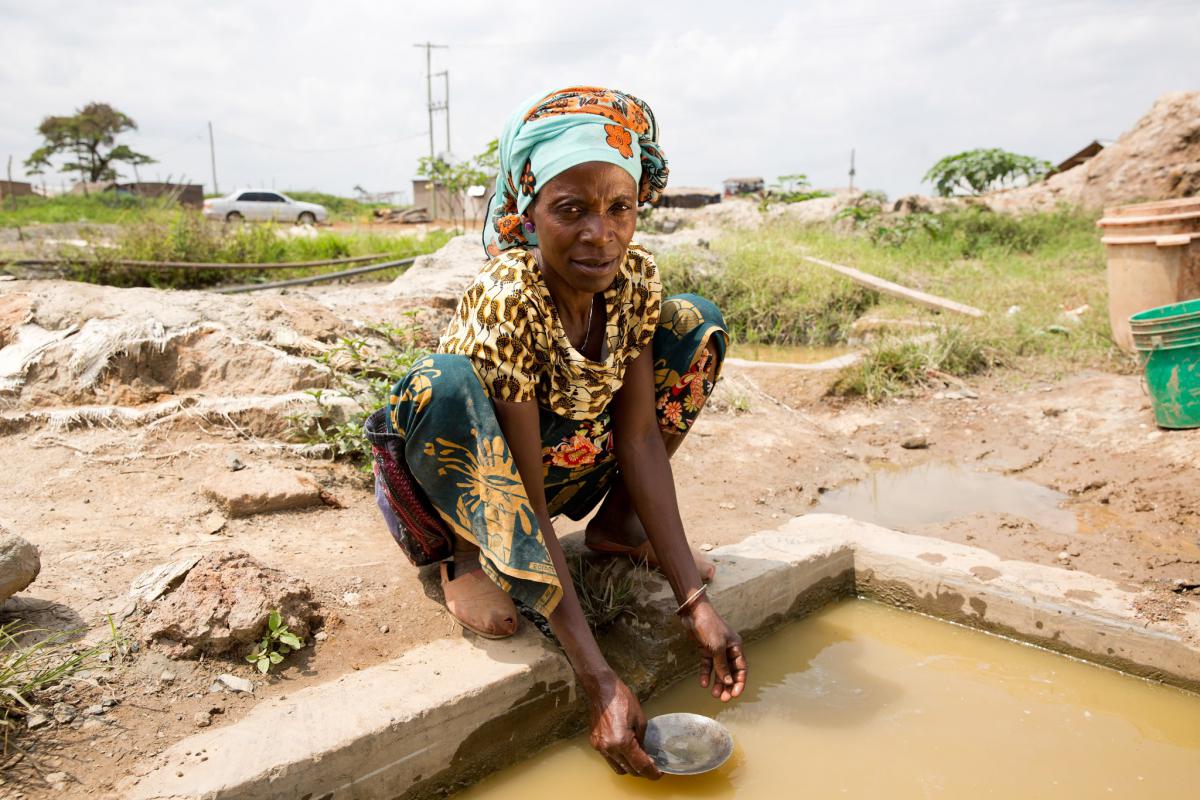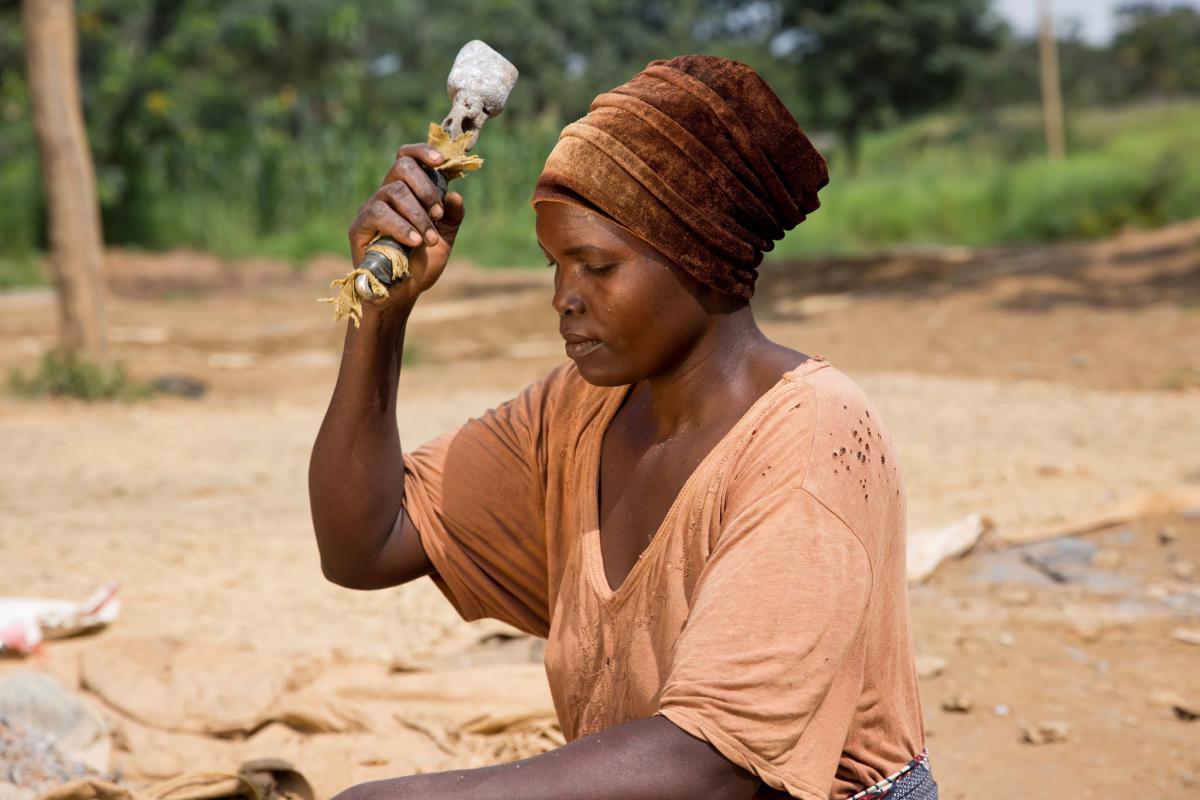
Pictured: Female miner in Solidaridad's Golden Line Programme in Tanzania
Globally, there are around 25 million people employed in small-scale mining. Three million are involved in the industrial sector and over 100 million are indirectly dependent on artisanal small-scale gold mines.
Unsafe, Unequal Working Conditions
Women represent up to 50% of the workforce however their contribution is not fairly rewarded. Women lack access to skills and resources to improve their income. Further, cultural barriers and gender-based discrimination force them to take on low paid and low-skilled jobs in the mines.
Women face severe health risks and are exposed to sexual and gender-based violence. This leaves them vulnerable to unwanted pregnancy and the risk of contracting sexually transmitted diseases. These challenges impact women, their family, the communities they live in, and the gold industry as a whole.
The Role of Women Remains Underexposed
During this annual event, representatives from the private and public sector gather to discuss drivers for responsible sourcing. In 2009 the OECD Guidelines for Responsible Supply Chains were developed. Progress has been made on environmental and labour issues. However, the role of women remains underexposed.
To bring this issue to light, Solidaridad invited female mining entrepreneurs Amina Tahiru and Tina Mwasha to share their insights with policy-makers, civil society players and representatives from jewellery brands.
Speaking at today's conference, Amina, a female mining entrepreneur in Ghana and an advocate for women’s rights, said:
"In Ghana, women face challenges, not only in terms of security, but also lack of access to funding and good minable land. Women don’t have the same opportunity in obtaining viable mining concessions and they lack technical training to increase their productivity."
Following up, Tina, the first female mineral processing engineer in Tanzania and a researcher for over thirty years, said:
"In Tanzania, men refuse to give women serious positions within decision-making processes. They are left to do unskilled and low paying work."
Solidaridad is committed to improving the conditions of workers in gold mines and making artisanal and small-scale mining responsible and inclusive. In 2016, Solidaridad, in cooperation with Simavi and Healthy Entrepreneurs, initiated the Golden Line programme.
This programme empowers women in artisanal and small-scale gold mining communities in Ghana and Tanzania. These communities are respectively the second and fourth largest producers of gold in Africa, employing over one million people.

Pictured: Female miner in Solidaridad's Golden Line Programme in Tanzania
Speaking about this programme, Heske Verburg, Managing Director of Solidaridad Europe says:
“With this programme, we aim to improve working conditions of women, develop skills and knowledge, and help them grow and live their true potential. We do this, while at the same time engaging buying companies to source responsible gold from mines that produce with respect for women’s needs and rights. In addition, we advocate gender sensitive policies from governments and multi stakeholder initiatives.”
